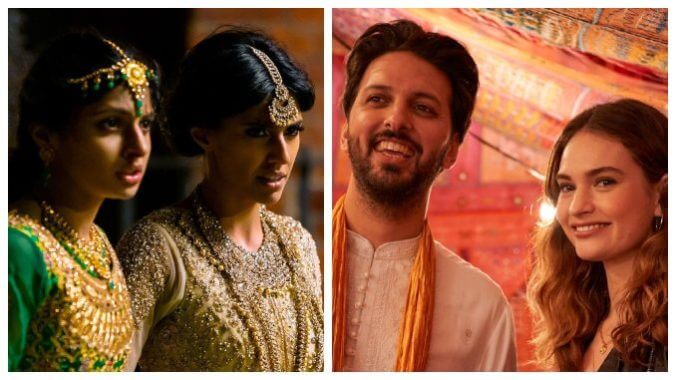Polite Society‘s Irreverent Cultural Insight Sets It Apart from Arranged Marriage Movies

Truth be told, the concept of an arranged marriage makes for a promising premise for a movie—or a TV series, as the makers of the popular Netflix show Indian Matchmaking know all too well. The fact that Netflix has now spun off a Jewish Matchmaking series also goes to show that it’s not just the South Asian version of the tradition that’s appealing to audiences and, by extension, film and TV producers. So long as marriage exists as a societal concept, how the union gets arranged will always be a source of interest—whether put together by your family or yourself. And given that arranged marriages are still the way a sizable percentage of South Asians get hitched (much to the continued astonishment of their North American peers), it’s inevitable that popular culture will continue to explore arranged marriages.
What’s Love Got To Do With It and Polite Society are two recent British films that show the possibilities on either end of the spectrum. The former is an explainer about a tradition that’s seen as peculiar to a particular community. To be fair, it is far more prevalent in South Asia, Asia and Africa, as well as other parts of the world—even though the concept of an arranged marriage is no different than a marriage of convenience forging business or political alliances. The latter, on the other hand, is a delightful send-up of all sorts of expected narratives, ranging from storytelling conventions to cultural expectations.
Written by British documentary producer Jemima Khan (née Goldsmith), What’s Love Got To Do With It is a decidedly old-fashioned narrative that still feeds—let’s be honest—the larger white imagination. In it, Zoe (Lily James) plays a documentary filmmaker with a disastrous dating life who decides to turn her lens on her best friend Kaz (Shazad Latif). He’s recently made the decision to allow his parents to search for a bride for him. No prizes for guessing what happens in the end.
Polite Society, on the other hand, offers up a fresh and completely original look at the lives of a British Pakistani family, in which an arranged marriage is a plot device. Written and directed by Nida Manzoor, this film tells the story of Ria Khan (Priya Kansara) who wants to be a stuntwoman, just like her idol Eunice Huthart—a real-life British personality who worked as a stunt double for Angelina Jolie and as a stunt coordinator on several well-known Hollywood projects such Zack Snyder’s Justice League and Maleficent.
While Ria’s parents Fatima (Shobu Kapoor) and Rafe (Jeff Mirza) think her dreams are just a schoolgirl fantasy, her older sister Lena (Ritu Arya) cheers her on. So when Lena decides to go on a date on a whim, and then ends up getting engaged to the handsome doctor Salim (Akshay Khanna), no one is more gutted than Ria. Thoroughly annoyed at the idea of her sister agreeing to the match, Priya decides to rescue Lena from the shackles of marriage.
Both films are British, but only Polite Society captures the zany British sense of humor, as the events that unfold veer from a coming-of-age story into kickass action sequences, even adding some social horror elements into the mix. What’s Love Got To Do With It tries to add some Bohemian charm through Zoe’s mom (Emma Thompson), a divorcee keen to set her daughter up with eligible men, but even Thompson’s charm can’t rescue the script from several groan-worthy moments.
-

-

-

-

-

-

-

-

-

-

-

-

-

-

-

-

-

-

-

-

-

-

-

-

-

-

-

-

-

-

-

-

-

-

-

-

-

-

-

-








































